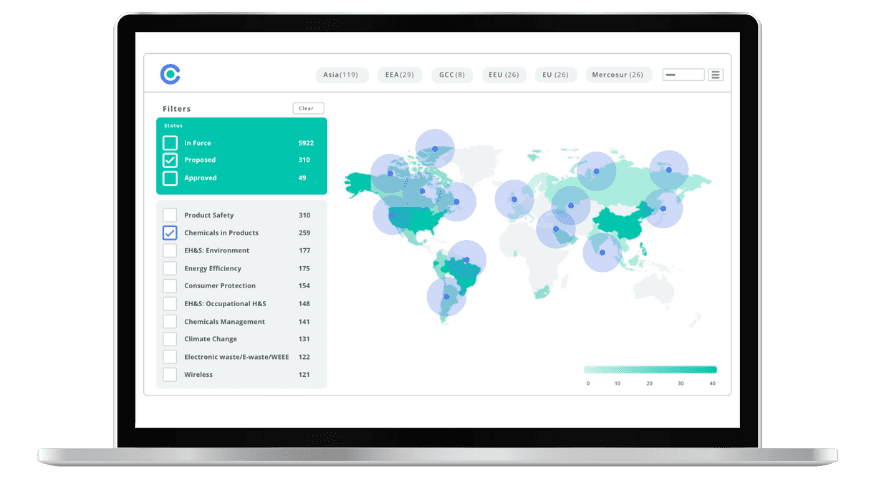
The Australian Government Unveils Draft Legislation on Mandatory Climate-related Disclosures

This blog was originally posted on 30th January, 2024. Further regulatory developments may have occurred after publication. To keep up-to-date with the latest compliance news, sign up to our newsletter.
AUTHORED BY CELIA LE LIEVRE, SENIOR REGULATORY COMPLIANCE SPECIALIST, COMPLIANCE & RISKS
Introduction
On 12 January 2024, the Australian Treasury released a draft legislative proposal on climate-related disclosures for a 29-days consultation period, ending on 9 February 2024.
In this blog we explore the requirements under this draft legislation.
Australia’s Mandatory Climate-related Disclosures: Draft Legislation
The draft legislation proposes to amend the Australian Securities and Investment Commission Act (2001) and the Corporations Act (2001) to introduce mandatory climate disclosure requirements for large businesses and financial institutions. In-scope entities that meet the prescribed thresholds would be required to prepare, in addition to their financial statements, an annual sustainability report in accordance with the Australian Accounting Standards Board (AASB)’s sustainability reporting standards.
Note that ASSB published the exposure drafts of three proposed Australian sustainability reporting standards in October 2023. The draft standards are subject to consultation until 1 March 2024. They will determine the exact scope and content of climate disclosures.
The sustainability report for a given financial year would essentially consist of:
- A climate statement;
- Accompanying notes to the climate statement (if any);
- Any statements required a legislative instrument by the Minister relating to matters concerning environmental sustainability; and
- The directors’ declaration about the statements and notes.
The reporting requirements will be phased in depending on the revenues and size of the company.
Application Timeframe and Groups
The following application timeframe is proposed:
- Entities in Group 1: first annual sustainability report due for the financial year commencing between 1 July 2024 and 30 June 2025; and between 1 July 2025 and 30 June 2026;
- Entities in Group 2: first annual sustainability report due for the financial year commencing between 1 July 2026 and 30 June 2027
- Other entities (see thresholds below): first annual sustainability report due for each financial year commencing on or after 1 July 2027.
Group 1 includes entities that meet at least two of the following thresholds:
- The consolidated revenue of the entity (and the entities it controls) equal to or greater than $500 million;
- The value of consolidated gross assets at the end of the financial year is equal to or greater than $1 billion;
- 500 or more employees; or
Alternatively, the entity must be a registered corporation under the NGER Act or be required to make an application to be registered under the NGER Act.
Group 2 include entities that meet at least two of the following thresholds:
- Consolidated revenue of the entity (and the entities it controls) equal to or greater than $200 million;
- The value of the consolidated gross assets at the end of the financial year of the entity (and the entities it controls) equal to or greater than $500 million;
- 250 or more employees; or,
Alternatively:
- The entity must be a registered corporation or be required to make an application for registration under the NGER Act; or
- The entity is an asset owner where the value of assets at the end of the financial year (including the entities it controls) is equal to or greater than $5 billion.
Group 3 entities are those that meet at least two of the following three criteria:
- The consolidated revenue of the entity (and the entities it controls) is equal to or greater than $50 million;
- The value of the consolidated gross assets at the end of the financial year of the entity (and the entities it controls) is equal to or greater than $25 million;
- 100 or more employees; or
Alternatively:
- The entity is a registered corporation under the NGER Act or is required to make an application for registration under the NGER Act; or
- The entity is an asset owner where the value of assets at the end of the financial year (including the entities it controls) is equal to or greater than $5 billion.
What’s Next for Australia’s Mandatory Climate-related Disclosures?
The proposal includes auditing requirements similar to those applicable to financial reports. Sustainability reports that are prepared between 1 July 2024 and 30 June 2030 would need to be verified on the basis of limited assurance. The scope of limited assurance will, in the first phase of application, be limited to statements relating to scope 1 or 2 GHG emissions. As of 1 July 2030, all climate-related disclosures included in the report will be subject to stricter scrutiny (reasonable assurance).
The proposal mandates the AASB to issue auditing standards before 1 July 2024.
The Treasury is seeking feedback on the proposal and explanatory memorandum until 9 February 2024.
Stay Ahead Of Regulatory Changes
Want to stay ahead of regulatory developments like Australia’s Mandatory Climate-related Disclosures?
Accelerate your ability to achieve, maintain & expand market access for all products in global markets with C2P – Your key to unlocking market access, trusted by more than 300 of the world’s leading brands.
C2P is an enterprise SaaS platform providing everything you need in one place to achieve your business objectives by proving compliance in over 195 countries.
C2P is purpose-built to be tailored to your specific needs with comprehensive capabilities that enable enterprise-wide management of regulations, standards, requirements and evidence.
Add-on packages help accelerate market access through use-case-specific solutions, global regulatory content, a global team of subject matter experts and professional services.
- Accelerate time-to-market for products
- Reduce non-compliance risks that impact your ability to meet business goals and cause reputational damage
- Enable business continuity by digitizing your compliance process and building corporate memory
- Improve efficiency and enable your team to focus on business critical initiatives rather than manual tasks
- Save time with access to Compliance & Risks’ extensive Knowledge Partner network

ESG 2023: A Year in Review
Our whitepaper summarizes the ESG regulatory landscape in 2023, reviewing the key regulations proposed, published and/or entered into force.



